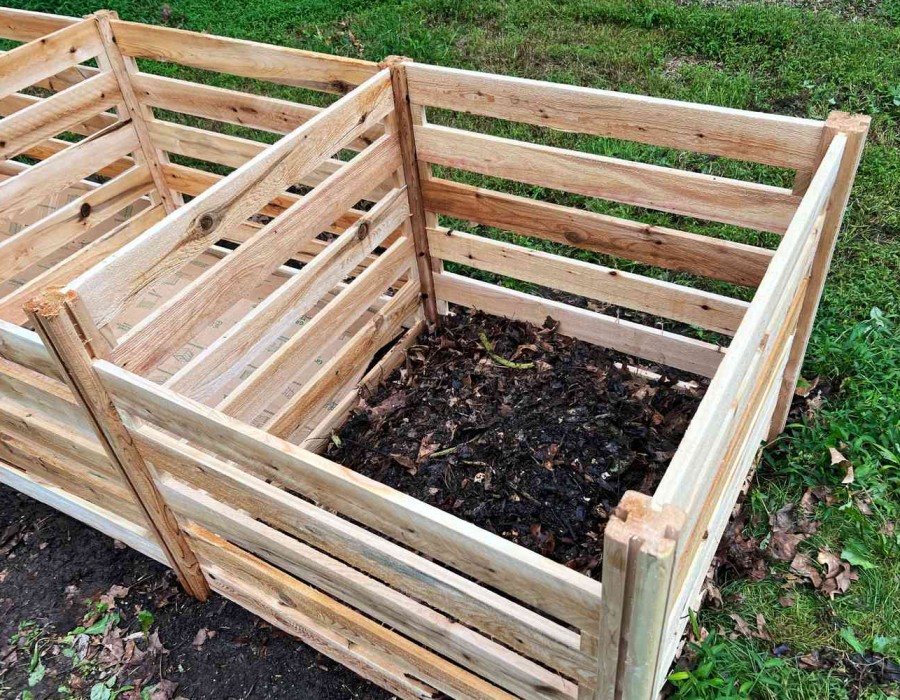Composting is a good way to reduce food and yard waste, turning it into nutrient-rich soil for your garden. However, the decomposition process can sometimes produce unpleasant odors, deterring many people, especially those living in small spaces, from trying it. The good news is that you can achieve odor-free composting with the right techniques and tools. Whether you're composting indoors or outdoors, mastering a few strategies will ensure your composting experience is effective and pleasant.
Indoor Composting Options
Indoor composting can be challenging due to the confined space, but several methods can help keep your home odor-free.
Electric Composters
These modern solutions use specialized microbes to break down food waste quickly and with minimal odor. These units are compact, efficient, and ideal for small apartments. An electric composter ensures that unpleasant smells are contained in the controlled environment for decomposition.
Bokashi Composting
This indoor method involves fermenting food scraps in an airtight bin using a special bran inoculated with beneficial microbes. This anaerobic process effectively controls odors, making it perfect for indoor use. The airtight nature of Bokashi bins ensures that the fermentation process occurs without releasing smells into your home.
Worm Composting (Vermicomposting)
Worm composting (vermicomposting) is a natural way to manage kitchen scraps. Worms consume the waste and produce nutrient-rich castings with little to no smell. Maintaining a worm bin is straightforward and can be rewarding, especially for those who enjoy a hands-on approach to composting. The key is to keep the bin properly balanced with the right amount of moisture and bedding to prevent odors.
Outdoor Composting Strategies
For those with outdoor space, there are several strategies to ensure your composting efforts remain odor-free.
Compost Tumblers
Compost tumblers are enclosed bins that are easy to turn. They help speed up the decomposition process and reduce odors. The enclosed design keeps pests out and odors in while regular turning aerates the compost, promoting aerobic decomposition.
Odor-Controlling Additives
Odor-controlling additives contain ingredients like biochar, zeolite, and mature compost that can absorb and neutralize odor-causing compounds. Adding a layer of these materials to your compost pile can reduce smells. Biochar, in particular, has a high surface area that helps trap odors, while zeolite acts as a natural filter.
Proper Pile Management
Proper pile management is important for odor-free composting. It involves maintaining the right carbon-to-nitrogen ratio, moisture levels, and aeration. A well-balanced compost pile should have a mix of "greens" (nitrogen-rich materials like kitchen scraps) and "browns" (carbon-rich materials like leaves and paper). Keeping the pile moist but not soggy and turning it regularly ensures that aerobic decomposition is optimized, reducing the likelihood of unpleasant smells.
Overcoming Common Odor Issues
Even with the best practices, sometimes odor issues can arise. Understanding and addressing these common problems can help keep your composting process stink-free.
Dealing with Anaerobic Conditions
This is essential to manage smells from incoming materials, storage, and processing. Anaerobic conditions occur when there isn't enough oxygen in the compost pile, producing foul-smelling compounds. To prevent this, ensure your pile is well-aerated by turning it regularly and avoiding overly wet conditions.
Controlling Fugitive Odors
Controlling fugitive odors is important during activities like turning the pile. Turning can release trapped odors, but doing it correctly can minimize the impact. If possible, turn your pile on a windy day, and add a layer of fresh, dry materials like leaves or straw immediately after turning to help absorb any released odors.
Addressing Specific Malodorous Compounds
This requires understanding their sources. For example, ammonia smells usually indicate too much nitrogen, while rotten egg odors suggest anaerobic conditions. Adjusting the carbon-to-nitrogen ratio or improving aeration can often resolve these issues. Add more "browns" to balance the nitrogen if your compost smells like ammonia. If it smells like rotten eggs, turn the pile to introduce more oxygen.
Conclusion
Odor-free composting is achievable with the right techniques and tools. You should choose suitable indoor composting options like an electric composter, Bokashi composting, or worm composting, and with that, you can manage food waste without unpleasant smells. Using compost tumblers, odor-controlling additives, and maintaining proper pile management are the main strategies for outdoor composting. With these methods, you can confidently reduce waste and enrich your garden without worrying about odors. When you go for odor-free composting, you benefit your garden and contribute to a more sustainable and environmentally friendly lifestyle.





Comments